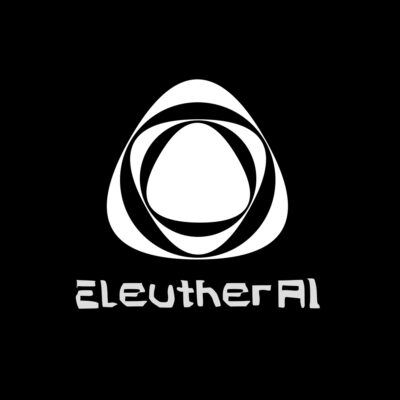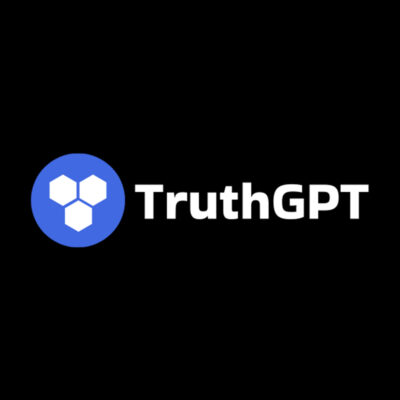Compare Models
-
Stanford University
Alpaca
FREEStanford University released an instruction-following language model called Alpaca, which was fine-tuned from Meta’s LLaMA 7B model. The Alpaca model was trained on 52K instruction-following demonstrations generated in the style of self-instruct using text-davinci-003. Alpaca aims to help the academic community engage with the models by providing an open source model that rivals OpenAI’s GPT-3.5 (text-davinci-003) models. To this end, Alpaca has been kept small and cheap (fine-tuning Alpaca took 3 hours on 8x A100s which is less than $100 of cost) to reproduce. All training data and techniques have been released. The Alpaca license explicitly prohibits commercial use, and the model can only be used for research/personal projects, and users need to follow LLaMA’s license agreement. -
ChatGLM
ChatGLM-6B
FREEResearchers at the Tsinghua University in China have worked on developing the ChatGLM series of models that have comparable performance to other models such as GPT-3 and BLOOM. ChatGLM-6B is an open bilingual language model (trained on Chinese and English). It is based on General Language Model (GLM) framework, with 6.2B parameters. With the quantization technique, users can deploy locally on consumer-grade graphics cards (only 6GB of GPU memory is required at the INT4 quantization level). The following models are available: ChatGLM-130B (an open source LLM), ChatGLM-100B (not open source but available through invite-only access), and ChatGLM-6 (a lightweight open source alternative). ChatGLM LLMs are available with a Apache-2.0 license that allows commercial use. We have included the link to the Hugging Face page where you can try the ChatGLM-6B Chatbot for free. -
EleutherAI
GPT-J
FREEEleutherAI is a leading non-profit research institute focused on large-scale artificial intelligence research. EleutherAI has trained and released several LLMs and the codebases used to train them. GPT-J can be used for code generation, making a chat bot, story writing, language translation and searching. GPT-J learns an inner representation of the English language that can be used to extract features useful for downstream tasks. The model is best at what it was pretrained for, which is generating text from a prompt. EleutherAI has a web page where you can test to see how the GPT-J works, or you can run GPT-J on google colab, or use the Hugging Face Transformers library. -
EleutherAI
GPT-NeoX-20B
FREEEleutherAI has trained and released several LLMs and the codebases used to train them. EleutherAI is a leading non-profit research institute focused on large-scale artificial intelligence research. GPT-NeoX-20B is a 20 billion parameter autoregressive language model trained on the Pile using the GPT-NeoX library. Its architecture intentionally resembles that of GPT-3, and is almost identical to that of GPT-J- 6B. Its training dataset contains a multitude of English-language texts, reflecting the general-purpose nature of this model. It is a transformer-based language model and is English-language only, and thus cannot be used for translation or generating text in other languages. It is freely and openly available to the public through a permissive license. -
Amazon
SageMaker
FREEAmazon SageMaker enables developers to create, train, and deploy machine-learning (ML) models in the cloud. SageMaker also enables developers to deploy ML models on embedded systems and edge-devices. Amazon SageMaker JumpStart helps you quickly and easily get started with machine learning. The solutions are fully customizable and supports one-click deployment and fine-tuning of more than 150 popular open source models such as natural language processing, object detection, and image classification models that can help with extracting and analyzing data, fraud detection, churn prediction and personalized recommendations.The Hugging Face LLM Inference DLCs on Amazon SageMaker, allows support the following models: BLOOM / BLOOMZ, MT0-XXL, Galactica, SantaCoder, GPT-Neox 20B (joi, pythia, lotus, rosey, chip, RedPajama, open assistant, FLAN-T5-XXL (T5-11B), Llama (vicuna, alpaca, koala), Starcoder / SantaCoder, and Falcon 7B / Falcon 40B. Hugging Face’s LLM DLC is a new purpose-built Inference Container to easily deploy LLMs in a secure and managed environment. -
StableLM
StableLM-Base-Alpha -7B
FREEStability AI released a new open-source language model, StableLM. The Alpha version of the model is available in 3 billion and 7 billion parameters. StableLM is trained on a new experimental dataset built on The Pile, but three times larger with 1.5 trillion tokens of content. The richness of this dataset gives StableLM surprisingly high performance in conversational and coding tasks, despite its small size. The models are now available on GitHub and on Hugging Face, and developers can freely inspect, use, and adapt our StableLM base models for commercial or research purposes subject to the terms of the CC BY-SA-4.0 license.
-
TruthGPT
TruthGPT
OtherTruthGPT is a large language model (LLM), and according to Elon Musk, TruthGPT will be a “maximum truth-seeking” AI. In terms of how it works, it filters through thousands of datasets and draws educated conclusions to provide answers that are as unbiased as possible. TruthGPT is powered by $TRUTH, a tradable cryptocurrency on the Binance Smart Chain. $TRUTH holders will soon access additional benefits when using TruthGPT AI. When we learn more, we will update this section.







